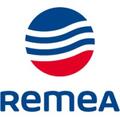When establishing geotechnical foundation conditions, it is important to keep in mind one of the provisions (§ 3 (1) (10) of the 2012 Ordinance), which does not always require a sozological study. However, in each case it is necessary to assess the risk of the presence of contaminants in the ground. If the historical analysis shows such a need, chemical testing is commissioned to a specialized company with the appropriate accreditation.
Special attention should be paid to the sampling technique, which should be in accordance with certified standards, with appropriate quality procedures. To optimize costs, it is advisable to conduct geotechnical and environmental surveys simultaneously. It is advisable that they be in accordance with the Regulation of the Minister of the Environment of September 1, 2016 on how to conduct an assessment of contamination of the earth's surface, and carried out in two stages - starting with general surveys and ending with detailed ones.
The construction of halls in industrial areas is a common practice, due to the availability of large areas and existing infrastructure. However, such locations carry the risk of contaminants in the ground, which can affect the safety of the investment and the environment.
Contamination on industrial sites - the key role of remediation before building halls
Industrial sites are often burdened by years of operation of factories, manufacturing plants or warehouses, which can lead to contamination of soil and groundwater with harmful substances, such as heavy metals and petroleum-based substances. These pollutants pose a threat to both the future users of the building and the surrounding environment.
Before starting construction of the hall, it is necessary to conduct geotechnical and environmental studies to assess the condition of the soil. If hazardous substances are detected, a remediation process is introduced.
What is remediation?
Remediation in the context of the construction of halls involves cleaning up the land on which the facility is to be built if contaminants are found in it. Remediation involves the removal or reduction of risk-causing substances, as well as their control and containment. This makes the investment safe for both workers and the environment.
Remediation can involve a variety of methods, depending on the type of contamination - from removal of contaminated soil to on-site cleanup. It's worth remembering that careful investigation and appropriate remediation are crucial to the success of industrial site developments, ensuring the safe use of new halls.
REMEA - Your Partner in Clean Land and a Safe Future
Planning an investment on an industrial site? Trust the remediation experts! Remea is a leader in soil cleanup and site preparation. Thanks to modern technologies and years of experience, we remove contaminants quickly, effectively and safely. Your project deserves a solid foundation - for more information, please visit: https://www.remea.pl/.
Emilia Lech at REMEA works as a Remediation Specialist/Environmental Engineer. Dr. Eng. of technical sciences in the discipline of Environmental Engineering. Graduate of the AGH University of Science and Technology in Cracow, majoring in municipal engineering. He has 7 years of experience in water and wastewater treatment technologies. He has authored and co-authored numerous scientific and popularization publications on water pollution and remediation. She has experience in the laboratory industry and is passionate about environmental pollution and remediation methods. She currently works in the design department, where she develops technologies for remediation of the soil and water environment for projects in southern Poland. For more than two years she supported activities related to the decommissioning of one of the largest "ecological bombs" in the country - the Kalina pond in Świętochłowice




